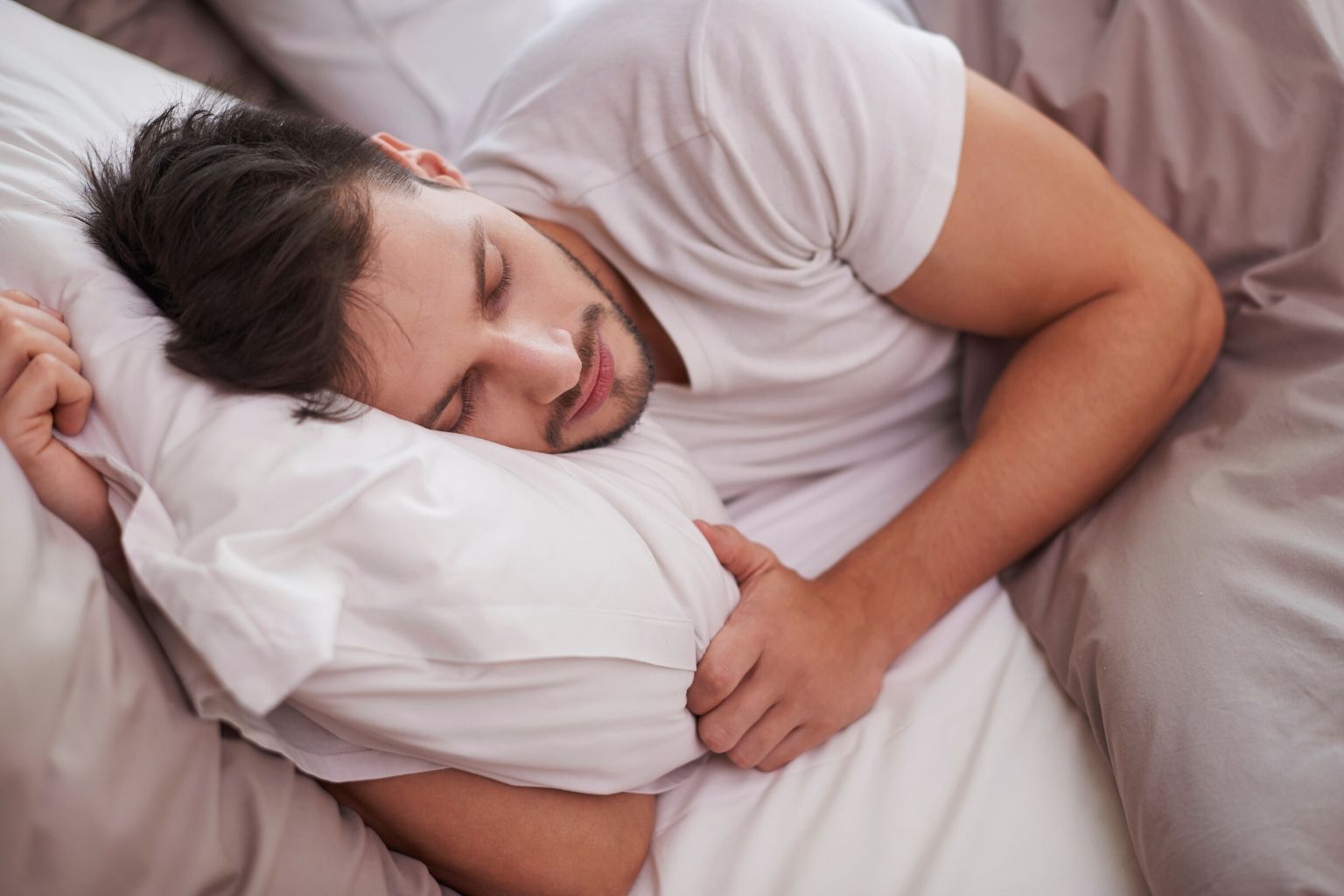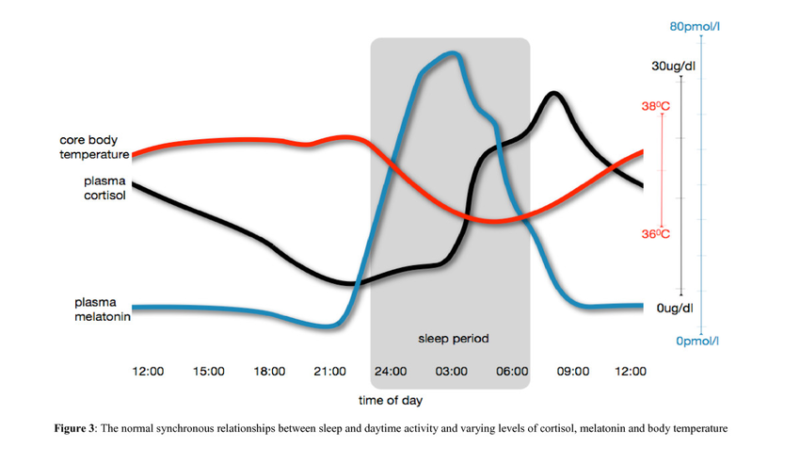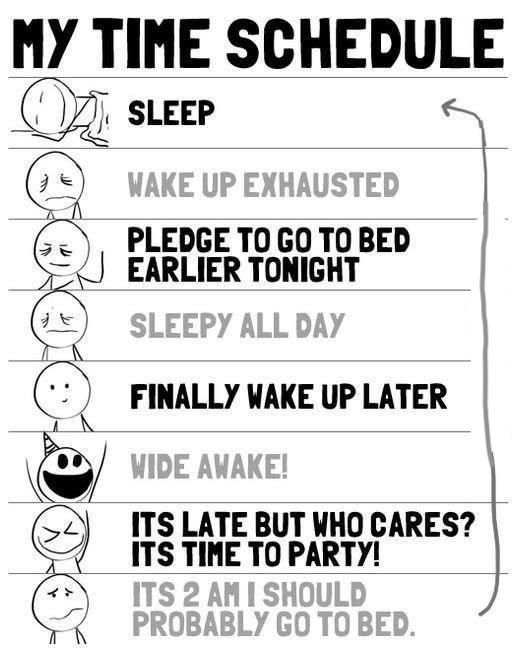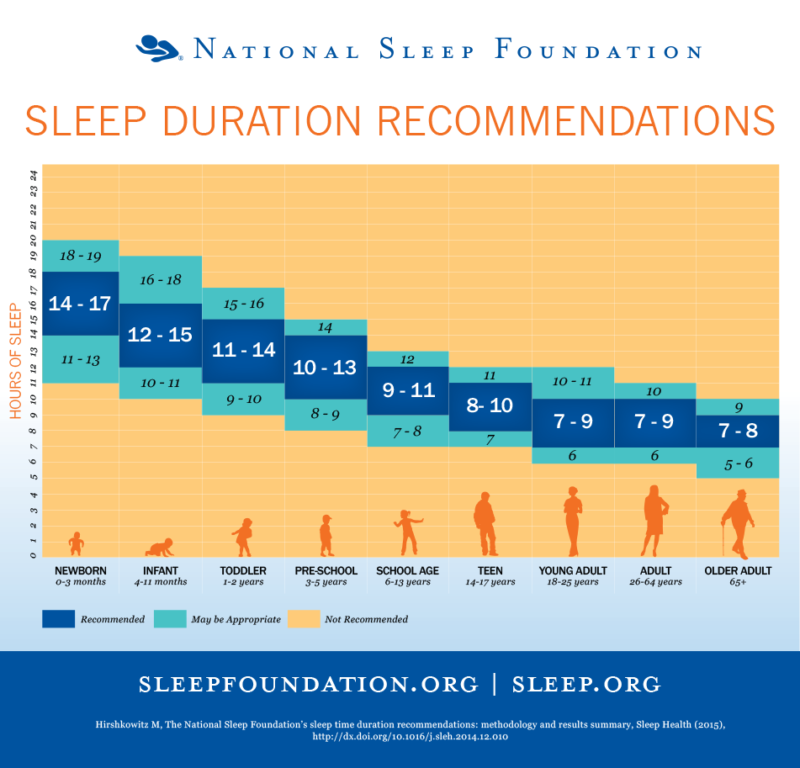
3 Strategies to Improve Sleep Quality
The majority of my clients are professional sailors that compete in short course racing, lasting anywhere from 3-4 hours of cumulative racing time each day. Sleep is a key priority for recovery in preparation for the next day’s competition and training. So, for today’s blog, I will address some of the basics of why quality sleep is important, and some simple strategies to help improve your performance.
First, it’s important to acknowledge that as humans we are driven by rhythm. The circadian rhythm is a 24hr process that many animals, plants, fungi and even bacteria experience on a daily basis coinciding with one full revolution of the planet. There are many distractions in our day-to-day lives like work, family, boat work, training, and competition, for example. Acknowledging this natural rhythm and, more importantly, honoring it, is vital for our health and longevity.
In the charts below you can see the relationship between melatonin and growth hormones (blue line) and cortisol (red line) throughout the day and night. Melatonin is the hormone responsible for the regulation of sleep. Cortisol is the hormone responsible for a number of functions including arousal (waking up).
As the sun rises, the cortisol released in your body increases and peaks between 6:00am and 9:00am. Cortisol is an activating hormone and is released, in this circumstance, in response to light, which is an important part of the circadian rhythm. It is a natural process that works to turn your body on and get it prepared for movement.

(One of the strengths of SPT's platform is monitoring athlete load.)
In the afternoon, cortisol levels drop significantly, especially as the sun descends. This allows for the release of melatonin, and also hormones responsible for growth and repair. This natural hormone activation and deactivation cycle is why the “wind down” period before sleeping is the most important lifestyle characteristic to ensure best performance each day.
Athletes that don’t have a proper “winding down” period often struggle to recover from training and competition, are more injury prone, and have trouble with muscle growth and fat loss.
Disrupted sleep/wake cycles are big killers of strength gains. The ability to adhere to your body’s natural cycle and get quality sleep is the best way to continue seeing gains in your training.
Take a look at the charts above and compare them to your current daily schedule, this might give you some idea of why your sleep schedule may be sub-optimal.

(One of the strengths of SPT's platform is monitoring athlete load.)
Some important questions to ask yourself:
- What are my energy levels throughout the day? Are there any big crashes of energy? Do I wake up energized?
- What times of the day do you currently train on and off the water?
- When do you go to bed?
- Do you crash when you hit the pillow or do you have a slow wind down?
- What are your sleeping and waking times?
These are some of the questions that are important to discuss with your Fitness Coach. At SPT, we measure sleep quality in the daily Performance Logs and discuss its impact during your consultations. Good sleep is imperative for the success and performance of any athlete.
It is important to keep in mind that training, on or off the water, is a form of stress on your body, whether we perceive it that way or not. Managing overall stress is one of my primary roles as a Fitness Coach. My goal is to program the minimum effective dose of stress on your body to ensure you adapt and improve in your training, but not so much stress that you fatigue or over-train. This is a fine balance to find, especially in a sport like sailing where the hours spent training on the water can exceed six hours. Add on top of that, life stress from school, family, work, boat work, fundraising, and travel, and we can see that managing stress, responsibilities and training can be a significant task.

The time of day an athlete decides to workout will impact the body’s natural sleep rhythm. Training in the evening, around 6-8pm (or later) is going to cause a stress response from your body: increasing cortisol release and delaying sleep. Likewise, watching TV or using an electronic device late in the evening, particularly in bed, is going to prevent the brain from being able to release melatonin and growth hormone and, again, delay or reduce the quality of your sleep and ultimately your performance. Thus, if out of necessity for competition you are required to race in the evening (as I did in the GC32 in Marseille last year), then your sleep habits need to be well practiced to be able to wind down and recover for the next day of competition. In the sport of sailing this happens, and we need to be ready for it!
Training needs to be structured around your rhythm, recovery, and lifestyle. Too often, I see athletes with poor sleep and highly stressful jobs hitting high intensity workouts day after day (often in the evening). This schedule is almost certainly a recipe for injury in the short term and illness in the long-term.
When it comes to managing overall training volume, lifestyle stressors, and recovery – sleep is king. As a benchmark, it is good to aim for 8-9 hours of sleep per night (I personally need 9-10 when I am training hard). The National Sleep Foundation gives different recommendations based on age (see chart below), although activity level and other factors need to be taken into account on a case-by-case basis.

Here are a few simple strategies that you can implement into your routine to dramatically increase both sleep quality and quantity while supporting a natural and healthy circadian rhythm.
#1 – Sleep in 100% darkness
When trying to sleep, the bedroom should be so dark that you can’t see your hand in front of your face. Any light in the room will stimulate the optic nerve and in turn inhibit the pineal gland from secreting melatonin essential for a deep and restful sleep.
Blackout blinds are a must-have (we have two layers at home), and where this isn’t possible or you are traveling (i.e. hotels, boats, airplanes, etc.), invest in a sleep mask. If you need to go to the bathroom during the night, DON’T turn on lights. Try using your other senses to find your way.
On waking in the morning, try to get exposure to sunlight as soon as possible to boost cortisol and stop production of melatonin. I understand this isn’t always possible depending on your location and the time of year. Having a daylight lamp, or daylight alarm clock can be hugely beneficial in these cases.
As good practice on waking, I recommend spending 2-3 minutes looking at the sky to help in this process. If you supplement with Vitamin D (as most people need to) then this is an ideal time to take them to support your circadian rhythm. If you do take Vitamin D, get outside as soon as possible for 30 minutes in the sun, whether for a walk, yoga, or AM aerobic sessions.
#2 – Don’t use devices before bedtime or in bed
We live in the 21st Century and we use electronic screens to read, to work, to study, to do just about everything!
If you absolutely must use devices before sleep, using a free app like, “F.LUX,” will help to limit the blue light emitted from the screen negating the stimulatory effects on the pineal gland. A more complete alternative to these apps are blue-light blocking glasses that will help to support your circadian rhythm, improve sleep quality, and aid in relaxation in the evening before bed. Wearing these glasses for 60-90 minutes before bed blocks blue light not just from screens, but also artificial light sources allowing the pineal gland to start the release of melatonin.
#3 – Stress
A common factor among people struggling to sleep is the inability to quiet the mind. Before sleep, our goal should be to unwind and stimulate the parasympathetic branch of the autonomic nervous system (responsible for resting and digesting). There are a number of simple ways that we can do this.
- Mindfulness/meditation – there’s a plethora of methods out there, which can be a little confusing at first. I’d recommend the free app ‘Headspace’ which will give you a free ten day course for ten minutes a day (you can repeat as often as you’d like). Also try subscribing to Tara Brach’s podcast where she posts great material and meditations regularly.
- Breathing – spend time practicing quality deep breaths where you aim to fill the belly with air. 30-50 quality breaths of Box Breathing (3 sec inhale, 3 sec hold, 3 sec exhale, 3 sec hold) in the evening DAILY is a good starting point and with practice extend the length of breaths and holds. A good app to help with breathing practice is ‘BreathPacer’.
- Dry skin brushing – this provides a multitude of benefits, with a parasympathetic stimulus being just one. Start out with a soft natural fiber brush and spend ten minutes brushing towards the heart starting from the extremities.
- Brain dump – on those evenings where your mind is running with thoughts, ideas, or worries, get them on paper. Writing them out or creating a to-do list can be a powerful tool to ‘empty’ those thoughts from your brain. I often write in my journal at night and then then transpose those thoughts into my iPhone’s reminder lists in the morning to avoid using a device at night.
Take time to consider your sleep quality and quantity and practice some of the recommendations for better sleep in this article. If you have questions about how to get a better nights rest, let me know!


